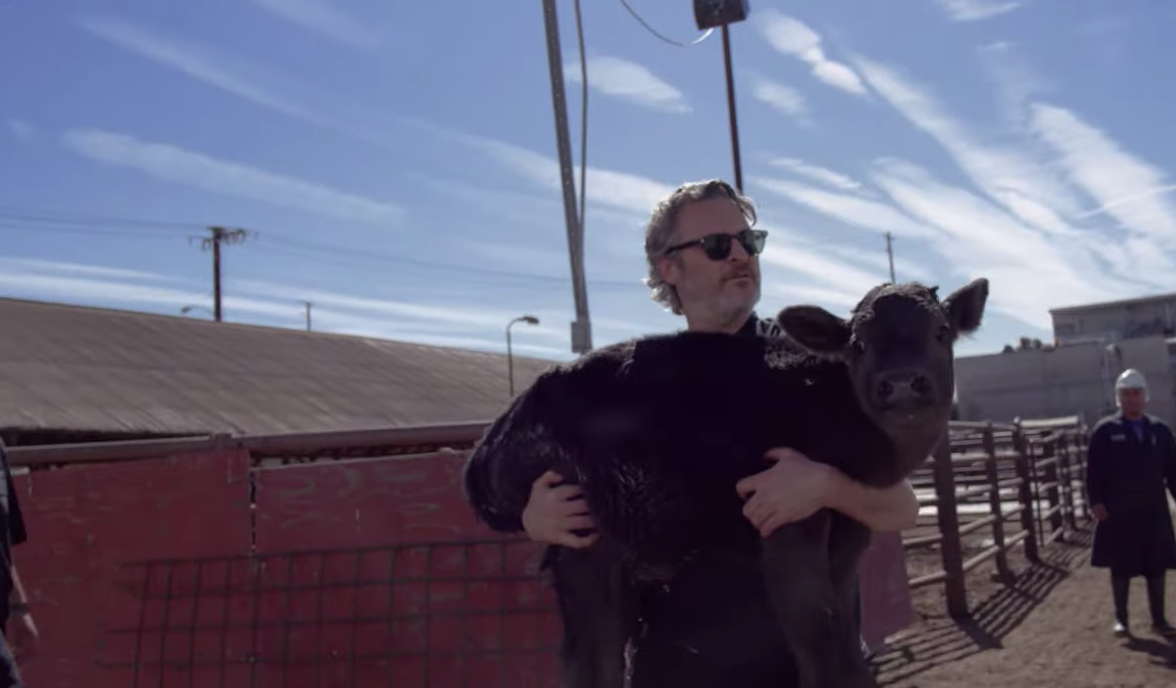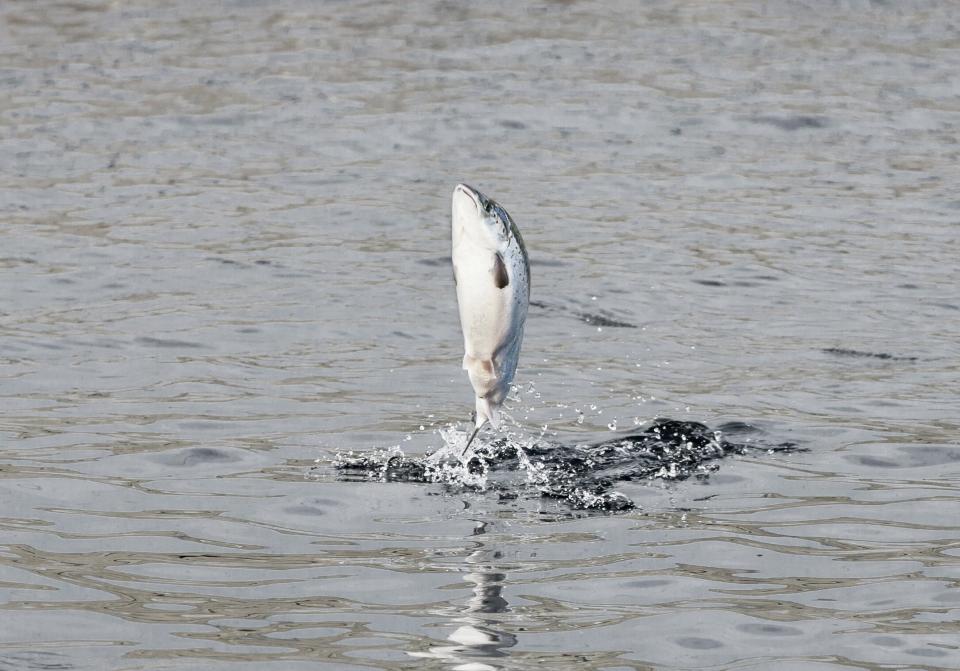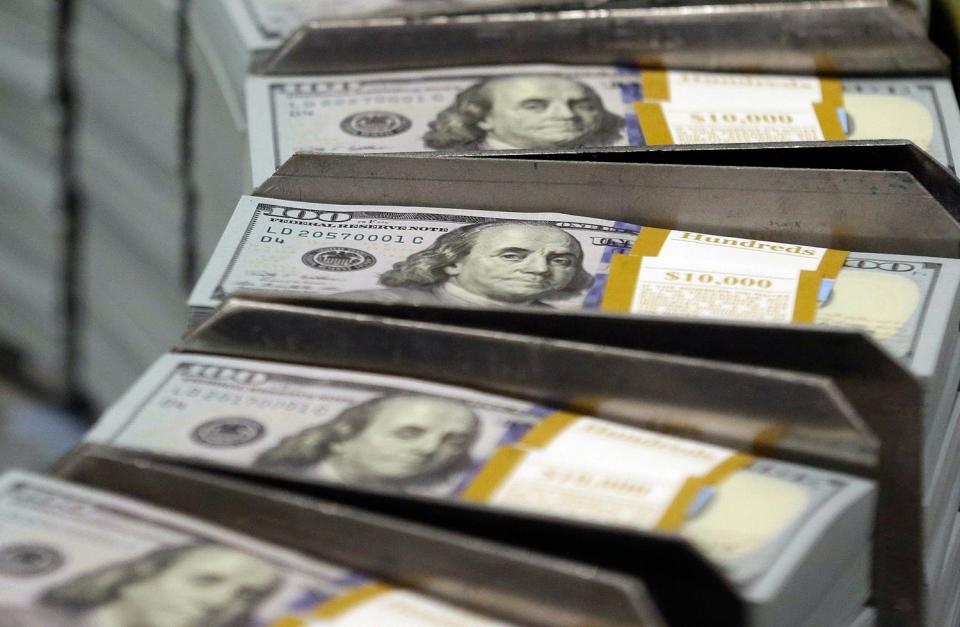In California: Guinness certifies the longest-ever wheelie; Joaquin saves a cow, calf

Also, the state is again suing the Trump administration after the president signs new regulations to get more water to farmers (it had been going to fish). And learn about the role two Berkeley economists are playing in the fight over taxing the wealthiest among us.
It's Arlene with lots of news to take you into the weekend.
But first, on a lovely Friday morning in the middle of an unusually warm winter, a brown bear took a walk in a Monrovia neighborhood.
In California has your daily news, features and interviews from across USA TODAY Network newsrooms and beyond. Click here to get this straight to your inbox.
Pilot wheelies his way into the Guinness Book of World Records

Aviation historian, writer and pilot Christopher Freeze set a new Guinness World Record after touching down in a Victorville airport. Actually, to be precise, he wheelied down for the longest distance in history.
Guinness certified the Valentine's Day feat on Friday morning via email, Freeze said. At 14,391 feet, the "soft landing roll" crushed the previous record of 6,561 feet.
You might wonder how long such a distance takes to travel via wheelie: In this case, 3 minutes and 19 seconds.
“It was definitely a major balancing act,” said Freeze, who lives in Virginia but chose Victorville for its long commercial runway. “There were a lot of factors in keeping that nose up. Too slow and the nose drops — too fast and the plane starts to lift off.”
Watch: The landing right here.
Coronavirus, quakes and Joaquin Phoenix's daring rescue
A second case of coronavirus is confirmed in Northern California.
Help your home withstand earthquakes with up to $3,000 in help from the state.
Joaquin Phoenix, a vegan who used part of his Oscar acceptance speech to tell people who drink milk they are stealing nutrients from babies, rescued a cow and a calf from Manning Beef facility in Pico Rivera. Don't miss his exchange with the CEO of the slaughterhouse.
Speaking of the Oscars, President Trump goes on for a second night about how a South Korean film won for Best Picture.
State goes to battle for a 'certain kind of 3-inch fish'

A day after President Trump signed new federal regulations that will send more water from critters and habitat to farmers, state Attorney General Xavier Becerra announced a lawsuit aimed at delaying implementation of the move.
“California won’t silently spectate as the Trump Administration adopts scientifically challenged biological opinions that push species to extinction and harm our natural resources and waterways,” Becerra said in a statement Thursday.
Adopting the new biological opinion, which found minimal enviro impact from the water transfer, fulfills a campaign promise Trump made during a stop to the region in 2016, during which he blasted limits on water delivery that protect “a certain kind of 3-inch fish.”
“A major obstacle to providing more water for the region’s farmers has now been totally eliminated by the federal government,” Trump said in Bakersfield on Wednesday.
What else we're talking about
One Night Only: See "Hamilton" for $10 in San Francisco.
A UCLA mom pleads guilty in college admissions case after spending 5 months in Spanish prison.
United and Jet Blue raise checked bagged prices. WHY!?
For low-income families, poor credit keeps doors closed
Many people struggling to find housing learn quickly enough that on top of hefty rent and scarce inventory, there will be another barrier: their credit scores.
Poor or no credit can lead to higher insurance rates and utility deposits, and people with poor credit can be denied jobs, loans and housing – even Section 8 housing. But one organization is hoping to alleviate this barrier with a program called "lending circles," a loan in which people pool their money to lend and borrow.
Lift to Rise, a Coachella Valley nonprofit that collects housing and poverty data to push policy change, launched a local lending circle program aimed at serving poor, minority residents in January. They're working with San Francisco-based Mission Asset Fund, a nonprofit that launched the concept in 2008.
Find out more about this program and how it could be a key to some people improving their credit scores and their lives.
The Berkeley economists touting a (controversial) wealth tax

The top tenth of 1 percent of Americans held 19.3% of wealth in 2018 — that's triple the share compared to the compared to four decades earlier. The two Berkeley economists whose research led to that conclusion, Gabriel Zucman and Emmanuel Saez, have suggested a controversial way to help level the playing field: a tax on the wealthy.
It's an idea embraced by Democratic presidential contenders Elizabeth Warren and Bernie Sanders but not universally agreed upon by others in the field of economics.
“In terms of Democratic thinking, it’s been enormously influential, both in highlighting the issue of inequality — particularly how concentrated it is at the very top — and the way the tax system has been inadequate in combating that increase in inequality,” said Jason Furman, a Harvard economist who was a chairman of President Barack Obama’s Council of Economic Advisers.
Harvard University's Lawrence Summers, a former chairman of Obama’s National Economic Council, and Natasha Sarin, a University of Pennsylvania law school professor, challenged the pair's assumptions. They argue the tax would raise half of the $4 trillion Zucman and Saez project.
The New York Times took a closer look at the duo, who have spent their careers at the intersection of rising inequality and tax policy.
See Zucman's take on how Medicare for All would be funded and why the existing system amounts to a "crushing privatized poll tax."
That's it for this week. See you on Monday!
In California is a roundup of news from across USA TODAY Network newsrooms. Also contributing: Associated Press, New York Times
This article originally appeared on USA TODAY: Guinness World Record, salmon, Delta, Hamilton, wealth tax: Fri news.

